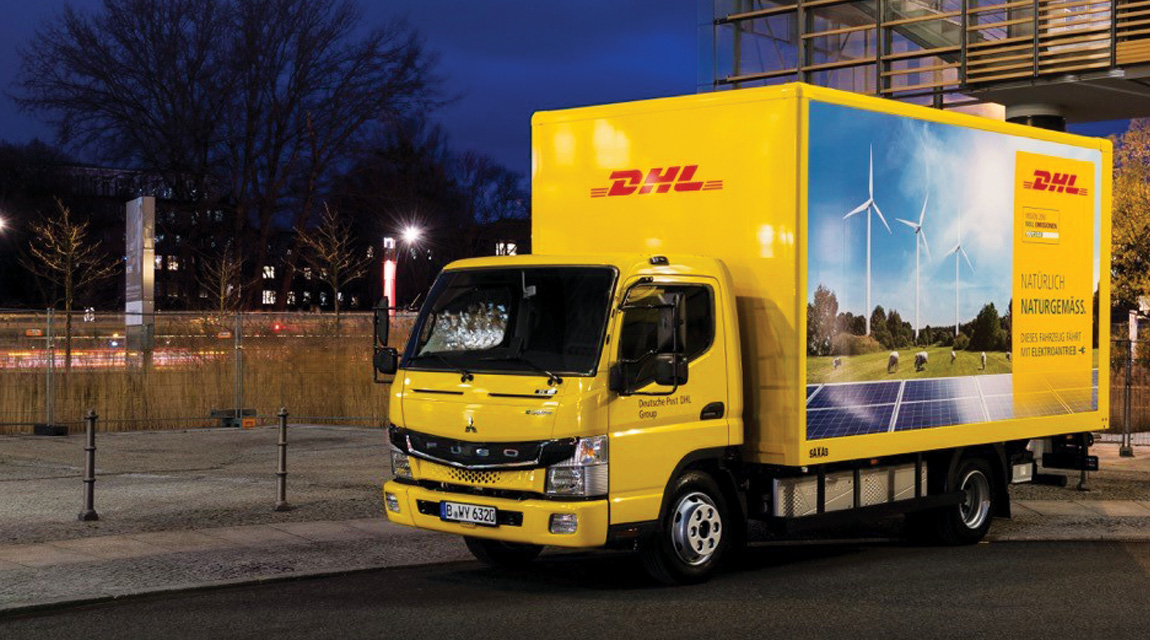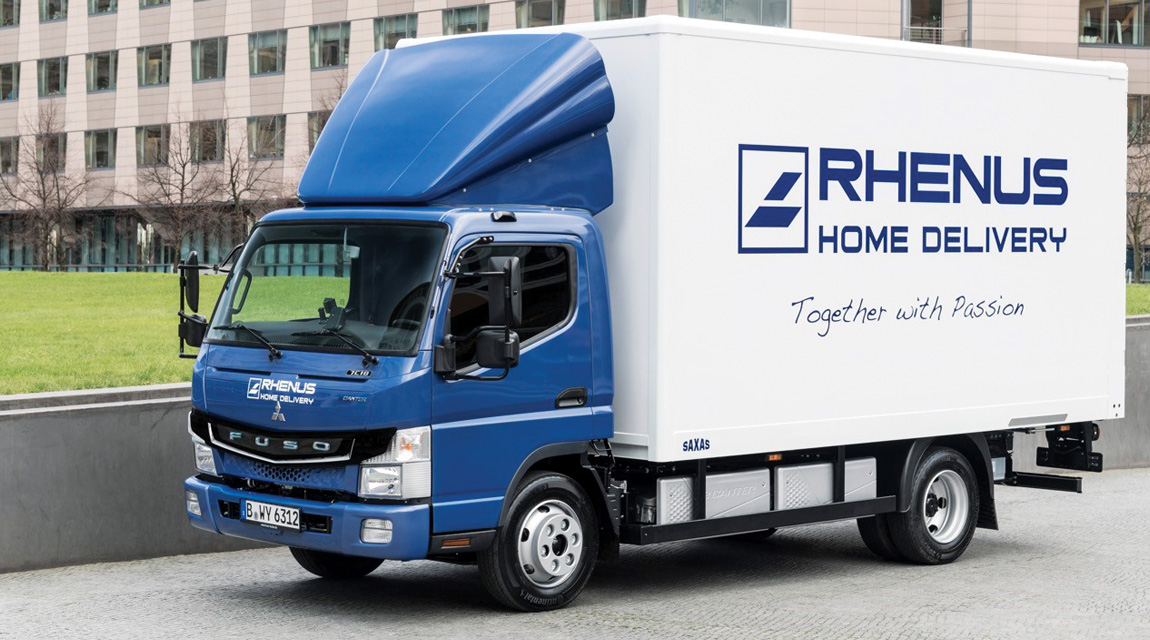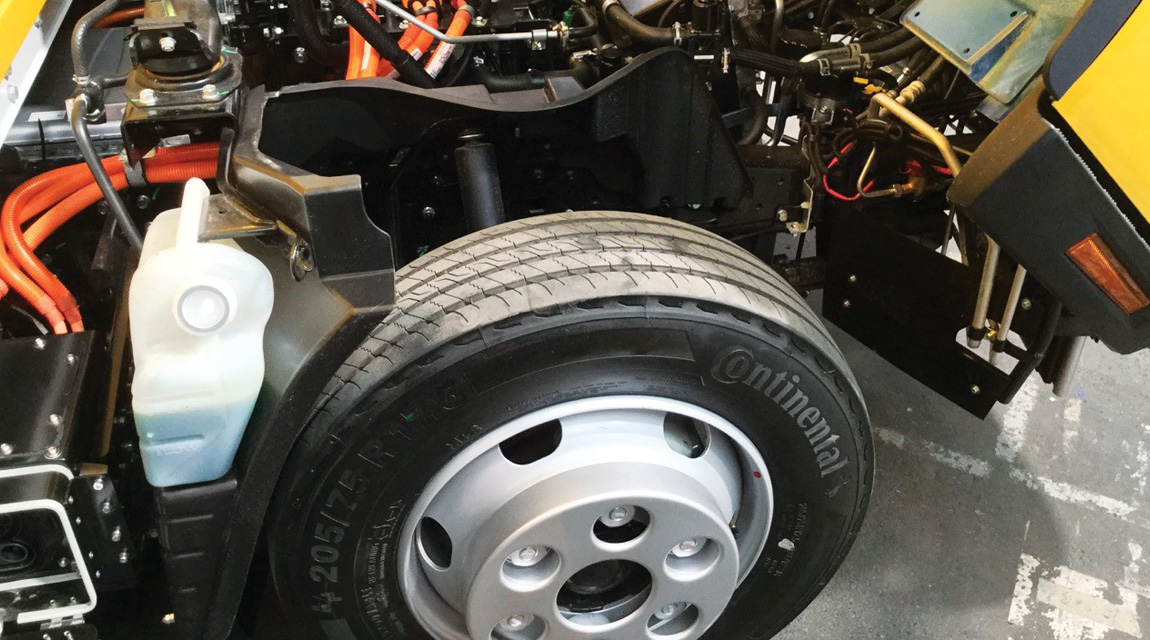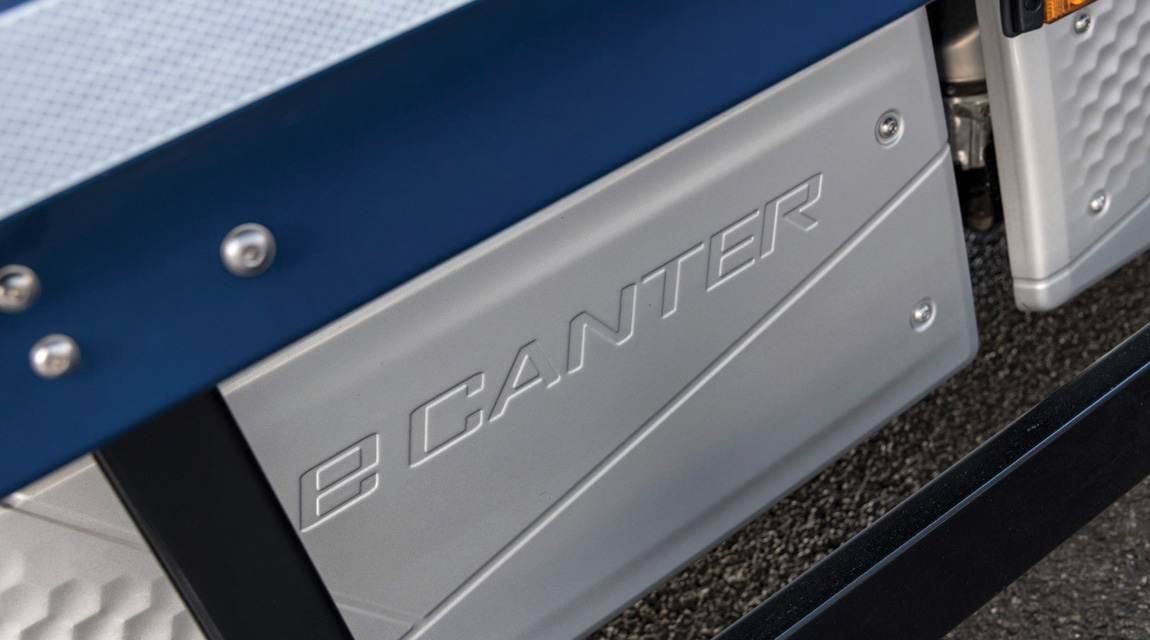eCanter floats eFuso down Electric Avenue

The eCanter is the first of a series of all-electric trucks and buses from Mitsubishi Fuso Truck & Bus under its EFuso brand. It is the first full-production zero-emission original equipment manufacturer (OEM) to have a stand-alone, electric-mobility range of commercial vehicles, says JARLATH SWEENEY, editor of Fleet Transport.
Fuso has been on this electric journey for more than seven years now and the eCanter has been developed out of the Canter eCELL and Eco-Hybrid models, to become the start of a truly global product line.
Fleet sales have already begun in Japan and New York, and a fleet of eCanters was recently handed over to a number of prominent transport and logistics operators in Berlin.

With its 100-km range, the ECanter is seen as an energy-efficient, carbon-neutral vehicle suitable for urban deliveries. According to Marc Llistosella, president and CEO Mitsubishi Fuso Truck & Bus Corporation (MFTBC), one eCanter can save 16 000 t of CO2 per year versus an internal combustion engine.
Llistosella alluded to the fact that the 7,5-t gross vehicle mass chassis-cab with box body becomes an integrated ecosystem, as the telematics on board provide all the necessary data required to ease any anxiety regarding range distance, increase uptime and lower total cost of ownership. This includes route planning, scoring (performance) and on-board sensors.
He is aware that charging-station infrastructure needs to be vastly improved for e-mobility to really work in fast-growing and congested cities. MFTBC is prepared to engage with fleet customers to provide the required stations at their warehouse depots or hubs.
Before the introduction of the inaugural eCanter 1.0, more than 160 000 km of endurance testing was successfully completed at various locations around the world. Critical to the efficient operation of the eCanter is its quick-charge facility; up to 80-percent battery charge can be guaranteed within one hour using a DC 850V system.

Although the overall payload of the unit is around 700 kg less than the Canter 3,0-litre diesel, and the maximum speed is set at 80 km/h, the regeneration of the energy power is restored through deceleration and engine/foot brake use.
While a more conservative driving style is required, the silence of the drivetrain makes the experience more pleasurable, reducing stress on the driver in busy traffic situations. Slight modifications have been made to the cab’s front, and the interior design and layout have been improved.
For the European and North American markets, the eCanter is being manufactured at the Fuso plant in Portugal. Sales will be conducted through a fixed-lease arrangement with ongoing technology upgrades. The electric motor/battery pack is said to have a first lifespan of ten years.
During workshop sessions at the event in Berlin, Lars Schroeter, from Fuso’s technical department, noted: “The achievements so far with eCanter 1.0 include fuel cost saving, a reduction in maintenance, noise and emissions. The key challenges to come with the 2.0 version include range extension, payload increase, broader charging infrastructure and better battery packaging on the vehicle.”
Leading logistics companies take to the streets with ECanter
The Fuso eCanter’s high-profile trial customers are all in the logistics business, and are using them for work usually carried out by vehicles with conventional drivetrains.
The decision by the customers to choose the Fuso eCanter was influenced by factors such as noise and emission reductions, fleet sustainability and cost saving.
The drivers of the Fuso eCanter will be trained to operate the vehicle to ensure that they obtain the best results. The customers will operate the 7,5-t box-bodied rigids via a 24-month, long-term rental from CharterWay, Daimler’s own commercial-vehicle rental and leasing business.
Deutsche Post DHL will use its six vehicles in two of its business divisions. Two of the units will perform inner-city deliveries of heavy individual cargo items (such as electrical or large household appliances) to private and business customers of DHL Freight’s Berlin branch.

DHL Paket will use four vehicles for the delivery of goods to businesses and corporate clients. For this, the electric trucks will be fully integrated in existing business processes and will replace the vehicles with conventional drivetrains that were used to date.
DB Schenker chose the Fuso eCanter to give the company an opportunity to test a series-production electric vehicle for inner-city logistics under real-life production conditions. Among other tasks, one of the three trucks will deliver and collect general cargo in the inner city of Berlin.
Rhenus Group, a global logistics provider, will use the three Fuso eCanters within its home-delivery unit. From the central warehouse in Hoppegarten, the all-electric trucks will deliver furniture, consumer electronics, home appliances and heavy sport equipment to the inner city of Berlin.
Dachser will use two Fuso eCanters for last-mile transportation of general goods. This would include delivering pallets with industrial goods to micro-hubs, or delivering goods directly to customers, as well as collecting goods and delivering them to the Dachser branches. At these branches, the eCanters will recharge overnight using a high-voltage loading station.
| Specs | |
| Make/Model | Fuso eCanter 7C16e |
| Cab | Comfort – Single Cab (1 995 mm side) |
| GVM/Payload | 7,5 t / 4 290 kg |
| Range Distance | 100 km |
| Max Speed | 80 km/h |
| Engine | 129 kW/390 M, Electric |
| Transmission | Fully Automatic |
| Battery Pack | 6 x 13,8 kWh Deutsche HV |
| Brakes | Discs front/rear with ABS + EBD, ESP |
| Suspension | Springs front/rear |
| Tyres/Wheel size | 205/75 R17.55 |
| Wheelbase | 3 400 mm |
| Features | Rear-view camera and reversing warning buzzer, lane-detection system |
Published by
Focus on Transport
focusmagsa



